What do people with bad hearts do when they sleep?
All types of heart disease inevitably lead to two conditions: unstable or disturbed electrical activity of the heart (i.e., arrhythmia), and impaired mechanical activity of the heart (i.e., heart failure).
At night the body's vagus nerve is excited, which is good for the heart to rest. But heart disease excites the sympathetic nerves, which is not good for the heart. That is why heart disease occurs more often at night. Specifically manifested as:
Arrhythmia, self-conscious palpitations, or self-instrumented pulse of varying strength and irregularity, or even pulse rate less than heart rate.
Heart failure manifestations, lying down difficulties, need to pad the pillow, severe cases of night sitting breathing, often suffocated at night to wake up.
Angina pectoris, a variety of heart disease can lead to insufficient blood supply to the coronary arteries, more so at night, it can be manifested as chest pain or back pain.
Due to the reduced cardiac output, there are other atypical clinical manifestations, such as dizziness and headache, lower extremity tenderness and even spontaneous pain, etc.
However, the clinical manifestations of heart disease described above can also occur do other diseases, such as chronic obstructive pulmonary disease.
People with a bad heart, sleep often have 4 abnormalities, adhere to do 2 things, care for the heart
Heart attack is one of the more common cardiovascular diseases and is known as the 'harvester' of human health.
It is mainly due to persistent ischemia and hypoxia of the coronary arteries, resulting in ischemic necrosis of the myocardium, which, coupled with the fact that this disease occurs most often at night, also contributes to its extremely high mortality rate.
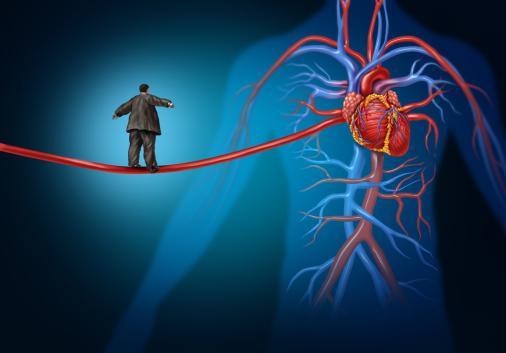
Doctors remind: the heart is not good people, sleep often have 4 abnormalities, accounted for one, also urge you to check it out
Abnormality 1. Chest tightness
Chest tightness is one of the common symptoms of heart disease and occurs mostly during sleep.
If you find that you have been experiencing unexplained chest tightness lately, you need to pay attention to it because it is likely to be caused by a heart condition.
When the heart is damaged and its function is reduced, it is easy to cause the body's oxygen, blood and other nutrients to not be replenished in time, thus causing chest tightness and chest pain.

Abnormalities 2. Arrhythmias
The heart, being one of the vital organs of the body, generally maintains a regular heartbeat.
When the heart's function declines and certain heart diseases occur, the regular beating of the heart can be broken, causing an irregular heart rate, which is especially noticeable at night when you are sleeping.
Once you find that your arrhythmia is very obvious, it is best to go to the hospital for a detailed examination to find out if there is any disease in your heart and to detect and treat it early.
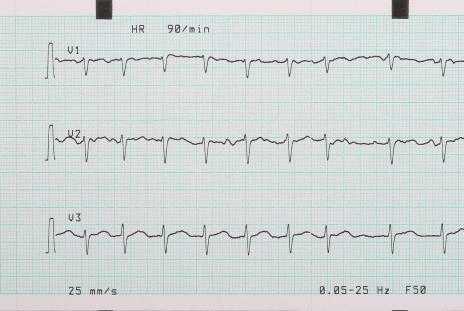
Abnormalities 3. Dyspnea
The heart is in good condition so that breathing can remain smooth.
When the coronary arteries are too narrow, or become blocked, the oxygen, blood, and other nutrients needed by the body cannot be supplied in a timely manner, which can lead to damage to the heart and cause symptoms such as difficulty in breathing.
Therefore, if you notice that you are not breathing well when you are sleeping and have obvious difficulty in breathing, you need to be alert to heart disease and start treatment for the problem in your heart area in time.
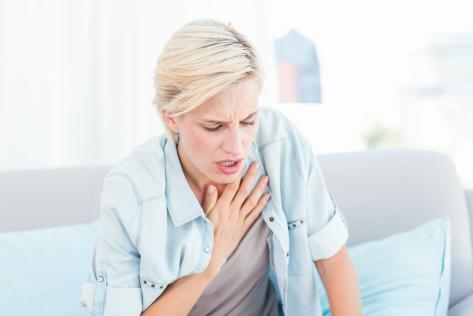
Abnormal 4. Insomnia and irritability
As the standard of living increases, so does the pressure on people.
Prolonged stress and nervousness can easily cause insomnia, panic attacks, night sweats and other symptoms, making it difficult to go to sleep in Shunyi.
Some studies have shown that people with a bad heart also wake people up directly in their sleep, causing sleep disruption, and about 50% of people with heart failure, experience central sleep apnea, which can be severe enough to cause sleep apnea.

The heart is afraid of 2 things, life attention to stay away from
1. Alcoholism
'A little drink is good for the soul, a big drink hurts the body', this is well known. But once on the wine table not by people, always drink and drink too much.
Excessive drinking, on the other hand, not only tends to increase blood pressure, but can even cause a rapid heartbeat, all of which are side effects of drinking.
Long-term alcohol abuse, but also easy to accelerate atherosclerosis, causing coronary artery blockage, induced heart attack.

2. Smoking
Smoking is one of the independent risk factors for heart disease.
Tobacco contains a lot of harmful substances, including more than 10 chemical substances related to the development of coronary heart disease alone, which can cause harm to the cardiovascular system from various aspects such as hematology, metabolism and hemodynamics.
Long-term heavy smoking, easy to accelerate the atherosclerosis of blood vessels, affecting the supply of blood to the heart, leading to heart disease more and more serious.

Prevent heart attacks, stick to 2 things to take care of your heart
1, less stay up late
Getting enough sleep is also one of the effective measures to prevent heart disease.
When the human body stays up late for a long time, the body's nutrients are constantly consumed, which will increase the burden on the heart, the body's immune system, and even lead to sudden death in serious cases.
In addition, when staying up late, the body is in a state of stress and the body will secrete a large amount of hormones such as adrenaline and norepinephrine, which can easily lead to coronary artery spasms, inducing the emergence of heart attacks.
Recommendation:Adults are guaranteed 6-8 hours of sleep per day, preferably before 11pm.

2. Proper exercise
Life is about movement.
Proper exercise can stimulate various tissue cells to secrete exocrine bodies, which are taken up by cardiomyocytes through blood circulation, enhancing the myocardium's ability to resist ischemia, thus effectively protecting the heart.
Moreover, adherence to exercise can also effectively consume fat, and play a role in controlling weight and preventing obesity.
Recommendation:Aerobic exercise 3-5 times a week for about 30 minutes each time is sufficient, so as not to feel tired.

Health tip: Remember '120' about heart attacks
Once a sudden heart attack, the first time to call '120' emergency telephone; heart attack of the golden rescue time is only '120' minutes, be careful to grasp.
Patients with heart disease do experience some abnormalities at night, and some may even experience serious life-threatening conditions.
1. Chest pain at night.In patients with coronary artery disease, there is not only the typical manifestation of exertional angina, but also spontaneous angina at night in some cases. This kind of patients, night due to coronary artery spasm, can appear in the resting state of chest pain, and the duration is more often, common in smoking and other patients, chest pain electrocardiogram was ST segment elevation performance. If this is the case, you can take diltiazem extended-release capsules at bedtime with better results.
2. Difficulty in breathing at night.Some patients with heart failure may experience nocturnal paroxysmal dyspnea at night due to body position, increased return blood flow, and vagal excitation. Some patients with respiratory diseases may also have chest tightness, which needs to be differentiated from BNP/NT-proBNP and cardiac ultrasound.
3. Sit-up breathing at night.This is a typical manifestation of left heart failure. Patients with more severe left heart failure can only sleep sitting up at night, and when they lie down, they will have difficulty breathing and coming up for air.
4. Acute left heart failure.In some patients with coronary artery disease, nighttime, especially the second half of the night, is the peak time period for heart failure episodes, and acute left heart failure can occur in severe cases, even life-threatening.
5. Other.In patients with heart disease, arrhythmias such as palpitations and fast heartbeat may also be present, which are mostly clarified by ambulatory electrocardiography.
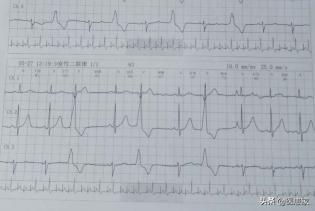
General often said that the disease, heart disease mentioned most is heart attack, coronary heart disease, etc., but in recent years more and more sudden cardiac death, so that many people pay more attention to the heart's health, because there are a lot of ways to affect the heart's health, long-term will cause heart disease, then the general heart problems, will be manifested as dyspnea, gray face, cyanosis, sweating, insomnia, irritability, frequent Coughing, irregular heart rate and so on. Also if there is a problem with the heart, restlessness, palpitations and other problems.

There are many dietary and lifestyle habits that can affect the health of the heart, such as smoking, staying up late, being sedentary, overeating, excessive drinking, excessive intake of high-calorie foods, and so on, and all of these factors can increase the burden on the heart, especially if these habits, if they are all in place, can also speed up the process of bringing on a heart attack as well as increase the severity of the problem. If once a heart attack occurs, or even a serious stent is done, besides the high cost of treatment, the future life needs to be strictly controlled to avoid a second relapse, because people who have stents are actually more prone to a second infarction, even life-threatening.
Then to prevent heart disease, you need to start with these dietary as well as lifestyle habits:
1. Go to bed early and get up early, and make sure you get 7 to 8 hours of sleep a day.
2. Quit smoking and limiting alcohol, and be careful to stay away from smoking environments.
3. Control total energy intake to maintain a healthy weight.
4. Eat less fried food, animal fat, barbecue and so on.
5. Eat less smoked and pickled food.
6. Eat fewer foods high in sugar.
7. Eat 500g of fresh vegetables, 100g of soy products per day, etc.
8. Drink a sufficient amount of water 1500-1700ml per day.
9. Maintain a happy mood, avoid mood atmosphere big drop.
10. Exercise moderately every day, not less than 1 hour, but exercise needs to be gradual, so as not to overdo it and bring problems to the heart.
What are the signs of a bad heart sleep
Sleeping with a bad heart may be characterized by nocturnal paroxysms of dyspnea, sedentary breathing, coughing, and coughing up sputum.
The main heart conditions that can affect sleep are heart failure, arrhythmias, angina, etc. A wide range of heart conditions can develop into heart failure.
1. Nocturnal paroxysmal dyspnea: patients with chronic left heart failure may be awakened suddenly after falling asleep due to breath-holding and forced to take a sitting position, which may be relieved after rest.
2. Sitting breathing: chronic left heart failure can lead to pulmonary stasis, to a certain extent, the patient can not lie down to sleep, only to take the high pillow position, semi-recumbent position or even sitting position can be improved.
3. Cough, cough sputum: chronic left heart failure patients, cough, cough sputum, the beginning of often at night, coughing up white plasma foamy sputum, occasionally see blood in the sputum.
4. Arrhythmia: The presence of palpitations may cause chest tightness, breath-holding, and anxiety symptoms affecting sleep.
5. Symptoms of angina pectoris: may appear in the early hours of the morning with awakening, chest tightness, breath-holding, persistent unrelieved, need to go to the hospital.
In addition, heart failure can lead to symptoms such as exertional dyspnea, hemoptysis, weakness, fatigue, decreased exercise tolerance, oliguria, nausea, vomiting, and edema. If you experience similar discomfort, you should seek medical attention to have the cause clarified and treated by your doctor.
This content was reviewed by Dr. Min Li, Chief Physician, Department of Cardiovascular Medicine, Beijing Anzhen Hospital, Capital Medical University.
Click here for details of the doctor's answer
Hello! People with a bad heart usually show four signs, usually chest tightness, arrhythmia, dyspnea, and insomnia and irritability.
Among other things, night sweats, insomnia, and panic attacks occur during sleep.
When it comes to a bad heart, the first thought that comes to mind is heart failure.
There are many heart conditions, but they are often due to abnormalities in the blood vessels and so on, which in turn affect the heart, and if it refers to a bad heart alone, then heart failure is definitely a perfect match.
The heart is the engine of the human body, its normal or not determines whether the other organs can "full power" operation, heart failure patients will be due to a variety of reasons, injury to the myocardial tissue, resulting in a decline in cardiac function, into a vicious circle, endangering life.

What are some of the abnormalities that can occur when a patient with heart failure sleeps at night?
1, suffocating and waking up during sleep, chest tightness
2, paroxysmal cough during sleep at night
3, sudden anxiety, insomnia
4, total urine output decreases, but nocturia becomes more frequent

How should heart failure patients "fight" on their own?
The most typical symptom manifestation of heart failure patients, is activity limitation, because their heart function has declined, once the activity is too high, the consumption of blood oxygen energy will also increase, the heart load beyond the current limit, so a series of uncomfortable symptoms will occur, so many patients can move less to move less.
But in fact this is wrong, heart failure patients need to distinguish between stages, the current clinical classification has four, early and normal people are not different, this time should adhere to the exercise, which can improve the patient's exercise tolerance, quality of life to a certain extent, and better reduce the mortality rate; but for some late, that is, the fourth level of heart failure patients, in order to be safe, it is true that need to be bedridden for long periods of time, but it can be helped by family members to carry on the passive exercise to avoid venous thrombosis.
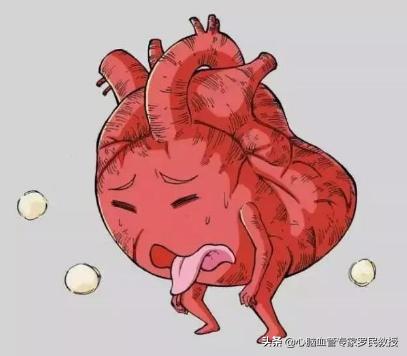
What are the most effective medical regimens for patients with heart failure?
No disease appears out of nowhere. For patients with heart failure, the most important thing is to analyze the condition, determine the underlying disease, and identify the responsible foci, which determines the subsequent development of a treatment plan with varying degrees of treatment difficulty. For example, heart failure due to heart attack is less difficult to treat and has a higher hope of recovery, while heart failure due to dilated heart disease is more difficult to treat.
Of course, due to the specificity of heart failure, we need to treat on the basis of safety, and all operations focus on the patient's life as the first element, so for some of the elderly or more serious patients, we need to change the order of treatment, should be strengthened first myocardial activity, improve the ejection fraction, and then remove the foci of the disease, to avoid the condition of the subsequent development of further.
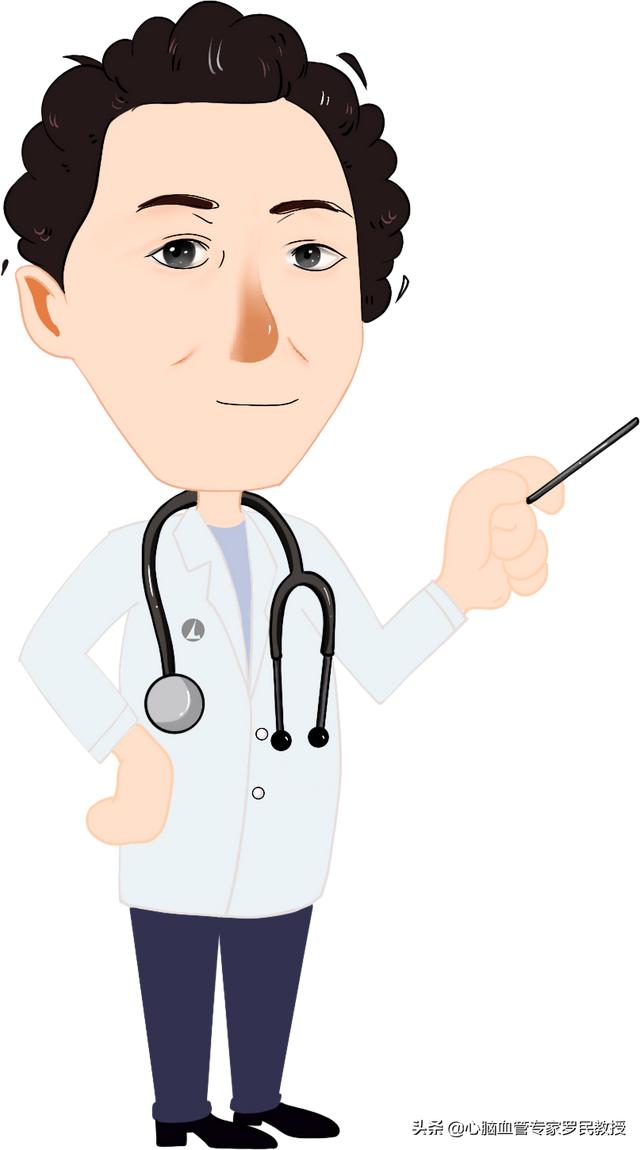
I hope my answer helps you!
If there's anything you don't understand, comment and private message me!
Bad heart, bad sleep, tightness in the chest, shortness of breath.
A bad heart can be understood as a cardiovascular disease caused by a heart lesion. Symptoms of heart disease mainly include: some type of chest pain, shortness of breath (shortness of breath), fatigue, palpitations, panic attacks, dizziness, and fainting.
However, the presence of these symptoms does not necessarily mean the presence of heart disease, for example: chest pain may suggest heart disease, but may also occur in respiratory disease and gastrointestinal disease; shortness of breath, shortness of breath may suggest heart disease, but also respiratory disease and so on.

However, people with a bad heart experience symptoms of varying degrees and to a greater or lesser extent, as this questioner said, what abnormalities may a person with a bad heart exhibit while sleeping?
First, there may be chest pain.Chest pain occurs when we are asleep due to some kind of nerve excitation and dysregulation of the blood supply to the heart muscle, which leads to a decrease in the blood supply to the coronary arteries, causing angina pectoris to occur due to spasm of the coronary arteries.
Secondly, there may be difficulty in breathing.This is caused by stagnation of the pulmonary circulation due to left heart insufficiency, and the patient is often forced to do it while sleeping.
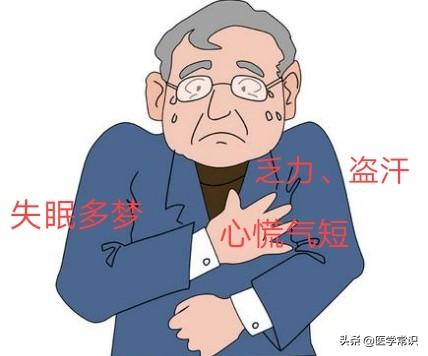
Finally, chest tightness, shortness of breath, and panic may occur.Due to sleeping, body position or lying down, there are also vagus nerve excitation and other causes of heart rate slowing down, or return blood volume is reduced, resulting in myocardial ischemia, hypoxia caused by chest tightness, shortness of breath, panic and other symptoms.
In short, people with a bad heart should do not drink strong tea, stimulating beverages, coffee, cola, etc., before bedtime, so as to go to bed early and get up early. Sleeping position to the right side of the lying position is better, if there is cardiac insufficiency, to semi-recumbent position or 30 ° angle slope lying position is appropriate.
It is recommended that people with a bad heart always keep a canister or bag of oxygen and first aid heart medication at home in case of emergency!
Follow the [General Medical Knowledge] headline to learn more about health!
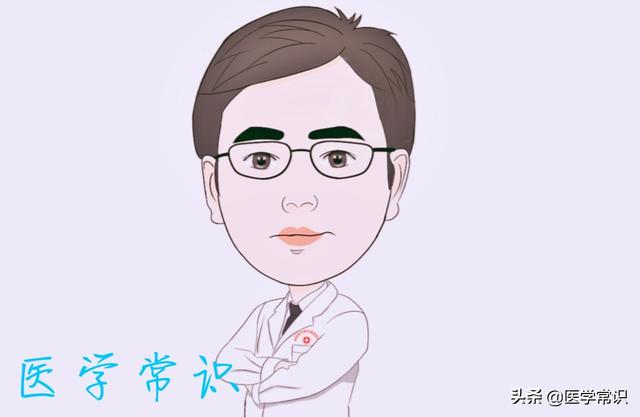
Thanks for reading!
If your heart is good, look at these 2 places
01. Look at the forehead
The color of the forehead can show the health of the heart and cerebrovascular system. If a person his forehead no matter spring, summer, fall and winter are full of pimples, in fact, it shows that the person's heart fire is strong, blood circulation is not particularly smooth.
In addition to this, if the forehead often has pimples and is bad-tempered, impulsive and irritable, it means that the person has some problems between the heart and the lungs.
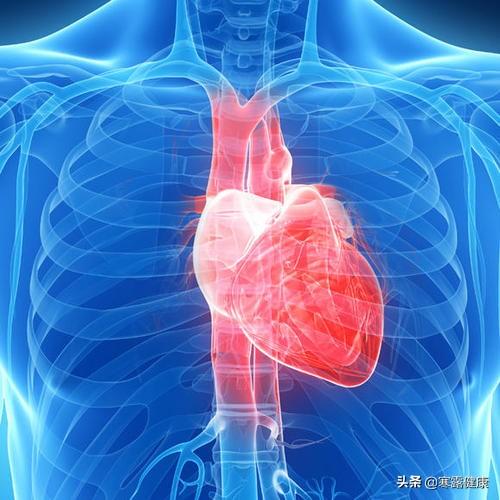
02. Look at the palm of the hand
Generally speaking, the root of the human thumb is a response zone of the human heart, located in the area of the greater trochanter of the left hand.
Pain: Using the thumb of the right hand, push and rub upward in the reflex zone of the heart 5-6 times, if there is obvious pain, or a foreign body sensation, this may indicate that there is an abnormality in the heart function of the heart.
Red spots: If there are red spots, it means that the heart fire is more intense, and you may have heat disorders such as heartburn, insomnia, and mouth and tongue sores.
Cyanosis: If you notice that this area is cyanotic in color, watch to see if you are experiencing symptoms of abnormal heart rhythms such as panic and palpitations.
Bump: That point in the middle of the root of the thumb is the reflex zone of the coronary arteries of the heart. If there is a bump like a worm, pay special attention to it, it could be a sign of coronary atherosclerosis, which could lead to a heart attack next.
Be alert for angina when there are clumps of red blood color.
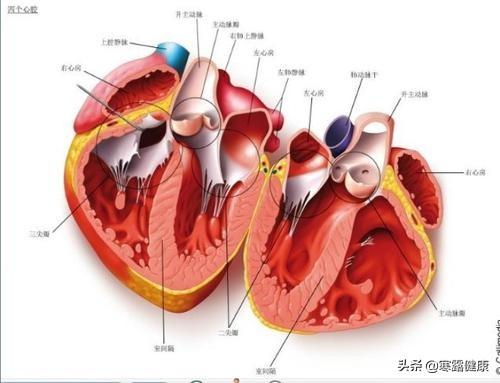
4 visions while sleeping, it's time to nourish your heart
1. Difficulty falling asleep, sleep disruption
A person with a bad heart will have panic attacks and night sweats, making it difficult to get into a smooth sleep. It can also wake a person right up in the middle of sleep, leading to interrupted sleep.
About 50% of people with heart failure, experience central sleep apnea, which can be severe enough to trigger sleep apnea.
2. Severe chest tightness and being woken up by suffocation
A bad heart can also lead to chest tightness and shortness of breath, especially during sleep. If you are sleeping at night and suddenly feel chest tightness or shortness of breath and wake up and are forced to sit up, it is important to seek medical attention at this time.
3. Cold hands and feet
When you sleep at night, the blood circulation throughout your body will slow down, the blood supply to your heart will be further restricted, and you will feel cold hands and feet and cold limbs.
If you experience cold hands and feet and chills, be alert for heart failure and don't ignore it.
4. Unexplained cough
The heart and lungs are connected, and when the heart is not functioning well, people are prone to coughing. Especially during sleep, frequent coughing, or coughing intensified, are indicative of problems with the heart and lungs.
This question and answer are from the site users, does not represent the position of the site, such as infringement, please contact the administrator to delete.